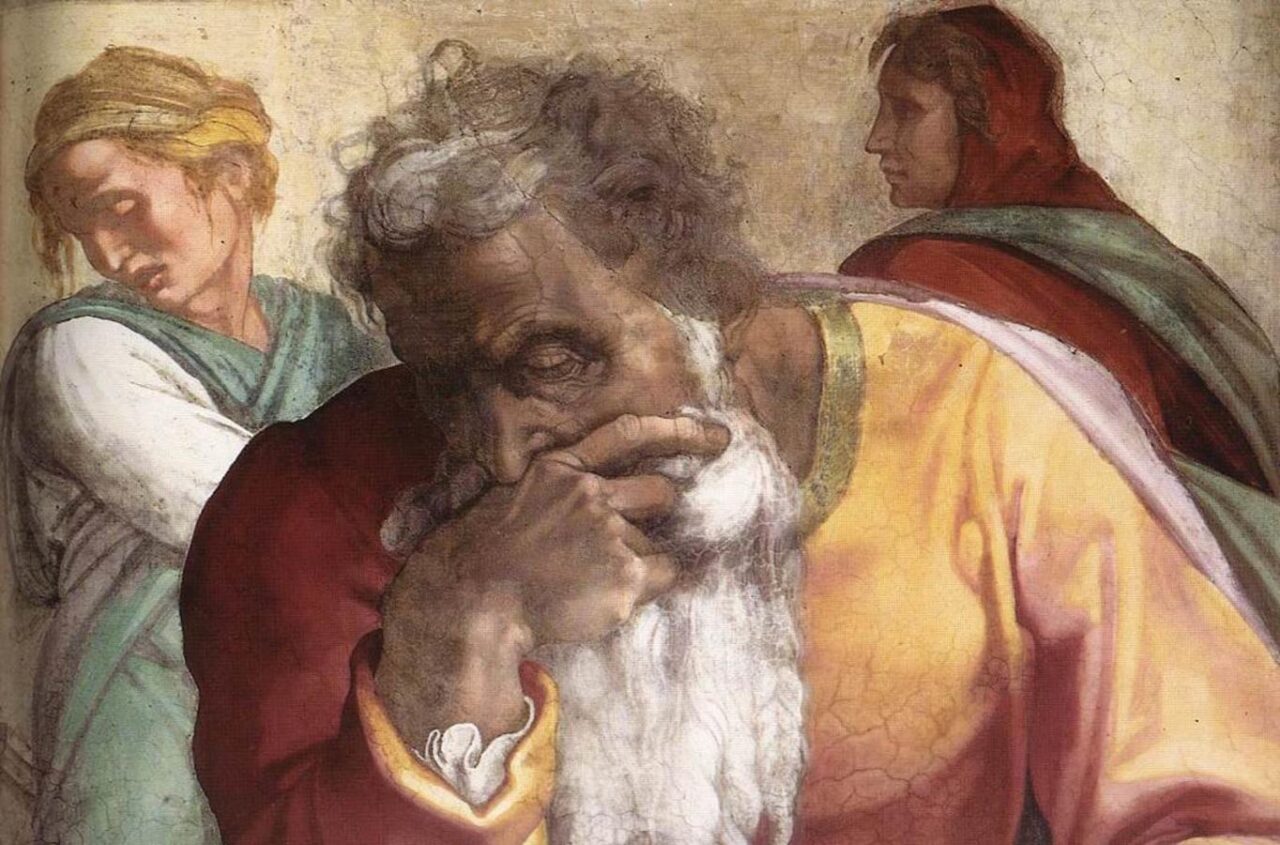Before moving on to an examination of the early history of the chaplaincy, I want to make one more observation. Mr. Daniel Sutkowski and I recently held a conversation comparing the prophets of the Bible with the chaplains we see on television who, say, give a prayer before a national ceremony. As with the Levites discussed in my previous post, prophets often worked in the secular realm, affirming or criticizing the established institutions of their day.
The Bible portrays a general cultural expectation for prophets to serve political objectives; certainly rulers (e.g. Balak, Ahab) expect as much, as seen by their disappointment when a prophet of God speaks otherwise. When we read the Bible, we side with those few prophets who spoke what God told them and did not simply allow themselves to become false prophets, tools of kings.
Now, we expect the chaplains we see on television not to abuse the pulpit they are given. Religion ought to transcend politics, and any chaplain who soils their ministry by making political statements in their holy roles commits sacrilege. A chaplain in such a role is expected to remain politically neutral, no matter the political realities on the ground. However, such chaplains seem to walk a narrow path between serving God and merely upholding the institutions they serve with their religious symbols and affirmations. It is easy to see them as mere servants of our holy political institutions, and with these institutions pushing religion into an afterthought, their chaplains take an increasingly conservative stance, reading prayers from printed sheets, holding back criticism of the institutions, and pathetically asking God for His favor while emptily waving religious symbols as if they could magically appease God. In one of my articles, I dreamt of a time when our national leaders would publicly come before God with humility, but the more upbeat “God bless America” charm continues to dominate.
I recently reread a piece Mr. Vladimir wrote in the early days of this website. One paragraph in particular reminds us of a certain kind of individualism possessed by God’s prophets:
The second point of good individualism is about the ability to stand out from the mob. It is a theme throughout the prophetic books of the Old Testament that the prophet steps forward to be persecuted by the group for a kind of wrongthink. In the New Testament, Christ epitomizes this theme with His criticism of the pharisees, and He is in turn met with a mob that yells “crucify him.” This ability to think independently from the crowd is directly related to the individual’s existence in the likeness of God by sharing the ability to create. God is the ultimate Creator, and our ability to create original ideas is another way in which God made us in His image and likeness. Independent thinking is a way of generating original thought, which is a way of creating an original idea.
Chaplains who stick to the least common denominator so as not to step on anyone’s political toes seem to forget that Moses’ toeses are not roses.
Ideally, a chaplain who serves God does not conflict with the institution he works for; ideally, that institution walks with God as one. Thus, just as any administerial staff of an institution like the House of Representatives should remain politically neutral, so too the chaplain of the House. But when an institution stops walking with God, how are we to distinguish between a chaplain who serves God and one who serves the broken institution he ministers to?
We face a dilemma regarding chaplains in national service. It seems prudent for a chaplain not to stoop to the low places of contemporary politics, not to abuse the pulpit in service of petty human political struggles. Yet, with such a status quo, it seems that no political message from God in the mouth of national chaplains would be taken seriously. In denouncing the chaplains who take political stances, we can risk becoming like those who ignored the biblical prophets. Knowing the spiritual depravity of our nation, our populace, and our politics, what ought we to expect and accept from our national chaplains who serve in politically tense arenas? I do not know the right answer, but I hope some Morning Walk discussions plumbing this problem may assist in its discovery.


Leave a Reply